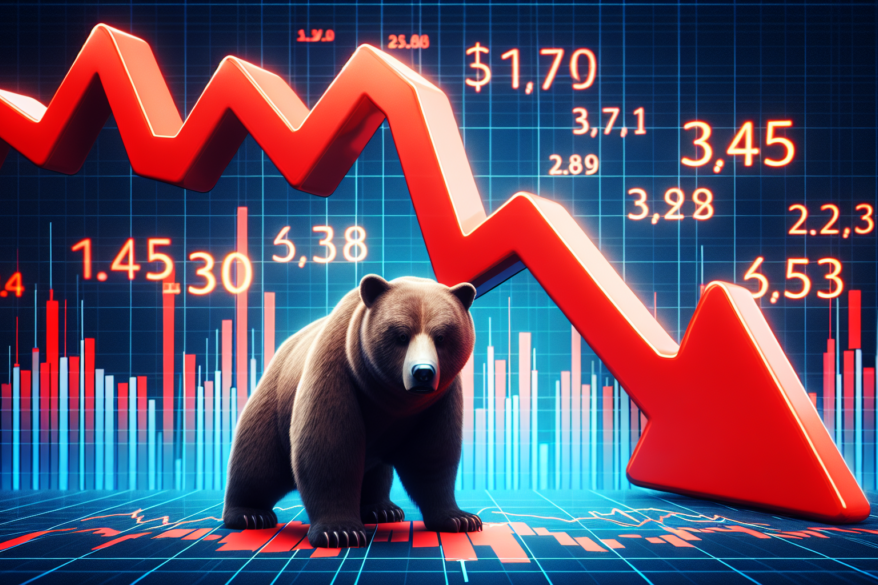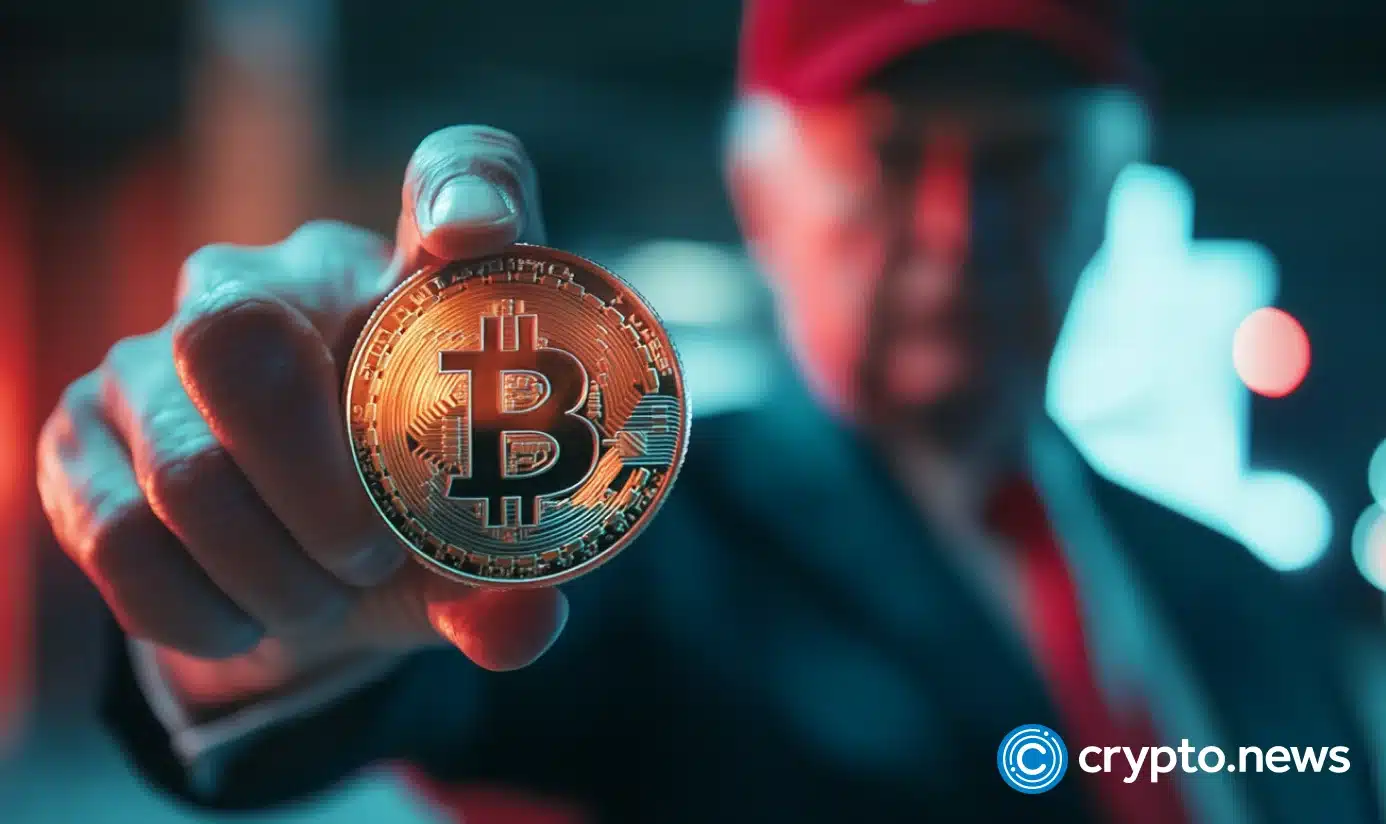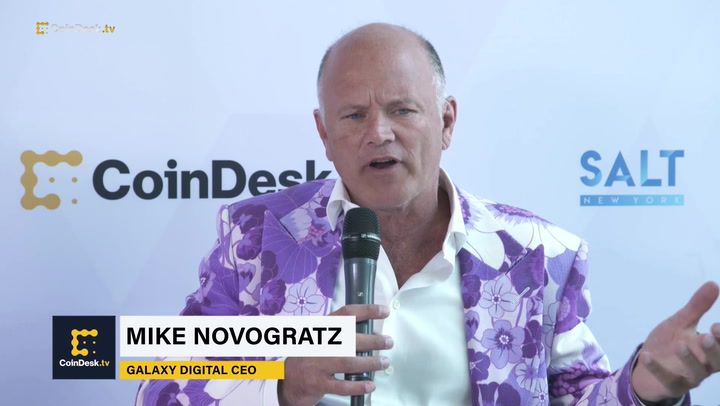- European MP Argues for Bitcoin Strategic Reserve, Says No to Digital Euro
- Bitcoin and Ethereum ETFs Struggle in Pre-New Year’s Sell-Off
- Bitcoin Price Crash To $96,000: How Low Will BTC Go Before The Bottom Is In?
- The Extraordinary Year When Bitcoin Went Mainstream
- Bitcoin (BTC) May Be Due for Significant Correction As Technical Indicators Overextend: Benjamin Cowen
Federal Reserve Chair Jerome Powell adopted a hawkish stance during his Wednesday press conference after the December Fed meeting, sparking a market bloodbath as the New York session headed to the close.
Although the Federal Reserve lowered interest rates by 0.25% to a range of 4.25%-4.5%, as widely anticipated, the updated economic projections suggest just two potential rate cuts in 2025 — down from four projected in September and fewer than the three anticipated by markets before the meeting.
Powell described the shift as “a new phase” for monetary policy, emphasizing that after 100 basis points of rate cuts in 2024, rates are now significantly closer to a neutral stance.
Stocks tumbled across the board, the U.S. dollar soared to two-year highs and Bitcoin BTC/USD cratered over 5%, as investors digested the reality of a shift in the monetary policy stance by the Federal Reserve.
The CBOE Volatility Index, known as the VIX and Wall Street’s fear gauge, skyrocketed 58% to 25, reflecting a spike in investor uncertainty and heightened anxiety over the future of interest rates.
Wall Street Wipeout: Major Indices Slammed
The Dow Jones Industrial Average, as tracked by the SPDR Dow Jones Industrial Average ETF DIA, dropped 1,123 points, falling 2.6% to close at 42,326, marking its worst one-day drop since September 2022. Amazon.com Inc. AMZN recorded the worst performance among blue-chip stocks, down 4.6%.
The S&P 500 index — tracked by the SPDR S&P 500 ETF Trust SPY — fell 178 points, down 2.9% to 5,872, also marking its worst day since September 2022. Paycom Software Inc. PAYC was the major laggard within the S&P 500, down 10%.
Xem thêm : What is a strategic bitcoin reserve and how would it work?
The tech-heavy Nasdaq 100, tracked by the Invesco QQQ Trust, Series 1 QQQ, experienced an even sharper drop of 3.6%, closing at 21,209 as interest rate-sensitive technology stocks took a beating. Tesla Inc. TSLA tumbled 8.1%, marking the worst performance within the Nasdaq 100.
Every Magnificent Seven company ended the day in the red, collectively erasing more than $600 billion in market value on Wednesday.
Small caps in the Russell 2000 posted the steepest losses, plummeting 4.7% to 2,225. With Wednesday’s move, the iShares Russell 2000 ETF IWM has fully erased the post-election rally.
All major U.S. equity sectors finished in the red.
Consumer Discretionary stocks suffered the most, plunging 4.5%, followed by Real Estate, which dropped 4% as rising rates weigh heavily on growth-oriented and interest-rate-sensitive industries.
Technology, the largest sector by market capitalization, fell 3.2%, with chipmakers and software companies bearing the brunt of the selloff.
Communications and Materials both declined 2.9%, while Financials dropped 3%, reflecting pressure across cyclical areas of the market.
Even traditionally defensive sectors failed to escape the selloff. Utilities and Consumer Staples fell 2.4% and 1.5%, respectively.
Dollar Surges To 2-Year Highs, Hammers Gold And Bitcoin
Xem thêm : Why 2025 Is The Right Time To Create National Bitcoin Reserves
The U.S. dollar emerged as the day’s clear winner, with the dollar index (DXY), followed by the Invesco DB USD Index Bullish Fund ETF UUP, climbing 1.2% to reach its highest level since November 2022.
As the greenback rallied, gold failed to provide a safe haven, falling 2.1% to $2,580 per ounce, while silver dropped 3.5%.
Risk-off sentiment extended into alternative assets. Bitcoin plunged 5.5%, trading just above $101,500.
During the press conference, Powell was asked whether the U.S. government should consider building a strategic reserve of Bitcoin. Powell quickly dismissed the idea, making it clear that such a move is not on the Fed’s radar.
“We’re not allowed to own Bitcoin,” Powell said, emphasizing the legal and structural limitations of the Federal Reserve. “The Federal Reserve Act dictates what we can own, and we’re not seeking any changes to that law.”
Read Next:
Illustration generated with AI via Dall-E.
© 2024 Benzinga.com. Benzinga does not provide investment advice. All rights reserved.
Nguồn: https://rentersinsurance.cyou
Danh mục: News







